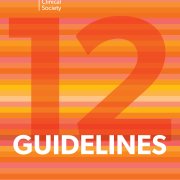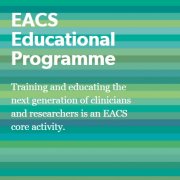International Women's Day 2022: Interview with WAVE Chair Prof. Yvonne Gilleece

About Professor Yvonne Gilleece
Department of HIV Medicine, Lawson Unit, University Hospitals Sussex NHS Foundation Trust, United Kingdom
Yvonne Gilleece qualified in Dublin and trained in London and is an Honorary Clinical Professor and Consultant in HIV & Sexual Health at University Hospitals Sussex NHS Trust and Brighton Medical School. She has a special interest in HIV & Women and is Chair of WAVE, Chair of SWIFT, promoting research in women living with HIV, Honorary Secretary of BHIVA and Chair of the BHIVA Pregnancy Guidelines. She also specialises in HIV and Bone and HIV and Hepatitis Coinfection & Liver Dysfunction.
What is on the agenda for WAVE HIV in 2022?
In 2022 WAVE will focus on four main areas of research using systematic literature reviews, surveys and data collection and analysis in addition to continuing its educational activities for healthcare professionals.
WAVE’s Objectives:
- Our breastfeeding project aims to improve knowledge on women with HIV in Europe who breastfeed their babies. There are significant data gaps throughout Europe with different guidelines and recommendations on breastfeeding for women living HIV, lack of accurate numbers of women who breastfeed and differences in women’s own knowledge about and attitudes to breastfeeding. WAVE will share this data through our workshop and publication to support clinicians providing HIV care to pregnant and/or breastfeeding women living with HIV.
- Our project on perception of HIV care among aging women living with HIV in Europe aims to explore how women living with HIV 40 years or older in Europe perceive their care and care pathways in relation to their HIV, comorbidities, and other health related issues. We want to identify aspects of care that are important to ageing women living with HIV to inform the provision of services for women living with HIV, in addition to developing goal-oriented interventions to improve the health and wellbeing of women across the life course.
- We have collated data using National Cohorts review (conducted in 2021) on newly diagnosed women which will be shared through presentations and publication. We have also conducted a systematic review of PrEP for women in Europe which we will publish. This work will inform WAVE’s recommendations for HIV prevention in women by identifying opportunities for risk behaviour assessment and PrEP/PEP service provision.
- A literature review and a survey will be used to identify the differences between programs of prevention of HPV-related cancers between European countries, to identify the barriers to access to methods of prevention of cervical cancer and to create and implement European recommendations in order to decrease HPV-related cancers among women living with HIV. WAVE will share this information through presentations and publication. We will also present our findings and recommendations to the EACS Guidelines panel to improve HPV screening and prevention in women living with HIV.
- WAVE are proud to work with our highly valued and respected Ukranian colleagues. We will continue to show our support for our Ukranian colleagues through ongoing improvement of standards of HIV care for women in Ukraine, by providing expertise of the WAVE members to Ukrainian HIV care professionals in the form of an online educational programme.
Why is it important for women (especially pregnant women) to be included in clinical trials and studies?
Recent Covid-19 vaccine studies, which did not initially include pregnant women despite them being greater risk of severe disease, have demonstrated the importance of including all women in studies very clearly. Similarly we cannot provide best care for women living with HIV if we have no evidence base for what we do. Therefore we must increase recruitment of women to all HIV studies and clinical trials, as well as also exploring women specific issues such as pregnancy and menopause. We need to change how we think so that instead of thinking it unethical to conduct research involving pregnant women, we should consider that it unethical not to include them. We are still holding on to the damage unregulated non-prescription drugs widely used in the 1960s did to pregnant women and their babies. Clinical trials and studies offer opportunities to safely monitor and assess new treatment modalities and women should have the same access to all treatments as men.
How could WAVE contribute to increase the number of women included in clinical trials and studies?
WAVE has promoted the inclusion of women in clinical trials by funding projects, surveys and literature reviews which define knowledge gaps and areas for further research. We highlighted this recently at our workshop at EACS, London 2021 by sharing updates on our projects so far such as, HIV in Migrant Women and Comorbidities in Women living with HIV, as well as a specific presentation on Women and Clinical Trials. WAVE also provides a link between scientific organisations, researchers, healthcare providers and community representatives to facilitate collaborations and joint working between countries on research ideas and studies. WAVE will continue its work to promote new women specific studies and also to lobby for inclusion of more women in HIV clinical trials and studies.

20th European AIDS Conference
15-18 October 2025 Paris, France

EACS Guidelines updated
The EACS 12.0 and the app are available for free on

Educational Programme
Training and educating the next generation of clinicians and researchers is an EACS core activity.

EACS Resource Library
Access all scientific content of EACS core activities! (members only)